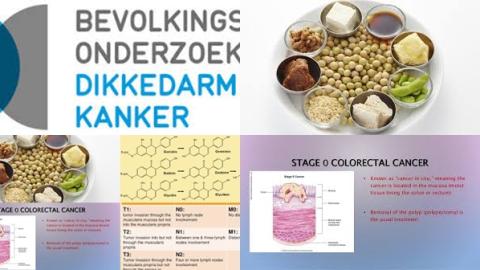
Objectives:
Epidemiological studies suggest that soya consumption as a source of phyto-oestrogens and isoflavones may be associated with a reduced risk of colorectal cancer. However, findings have not yet been synthesised for all groups of phyto-oestrogens. Therefore, this review article (meta-analysis) has been conducted.
Does soya consumption reduce colorectal cancer risk?
Study design:
This review article included 16 studies (case-control studies and cohort studies).
Results and conclusions:
The investigators found in case-controle studies a significant reduced risk of 24% [pooled RR = 0.76, 95% CI = 0.69-0. 84] for colorectal cancer when comparing the highest phyto-oestrogens with the lowest intake category. However, the reduced risk for colorectal cancer was not significant in cohort studies [pooled RR = 0.95, 95% CI = 0.85-1.06].
The investigators found in case-controle studies a significant reduced risk of 23% [pooled RR = 0.77, 95% CI = 0.69-0. 85] for colorectal cancer when comparing the highest isoflavones with the lowest intake category. However, the reduced risk for colorectal cancer was not significant in cohort studies [pooled RR = 0.94, 95% CI = 0.84-1.05].
The investigators found in case-controle studies a significant reduced risk of 30% [pooled RR = 0.70, 95% CI = 0.56-0. 89] for colorectal cancer when comparing the highest lignans with the lowest intake category. However, the reduced risk for colorectal cancer was not significant in cohort studies [pooled RR = 1.00, 95% CI = 0.64-1.57].
The investigators found dose-response analysis yielded an 8% reduced risk of colorectal neoplasms for every 20 mg/d increase in isoflavones intake in Asians [pooled RR = 0.92, 95% CI = 0.86-0.97].
The investigators found dose-response analysis showed a non-linear inverse association with colorectal cancer risk for lignans intake, but no association for circulating enterolactone concentrations was observed.
The investigators concluded every 20 mg/d increase in isoflavones dietary intake reduces risk of colorectal neoplasms with 8% in Asians.
Original title:
Phyto-oestrogens and colorectal cancer risk: a systematic review and dose-response meta-analysis of observational studies by Jiang R, Botma A, […], Chang-Claude J.
Link:
https://www.ncbi.nlm.nih.gov/pubmed/28091359
Additional information of El Mondo:
Find more information/studies on isoflavones, colorectal cancer and cohort study/review article right here.